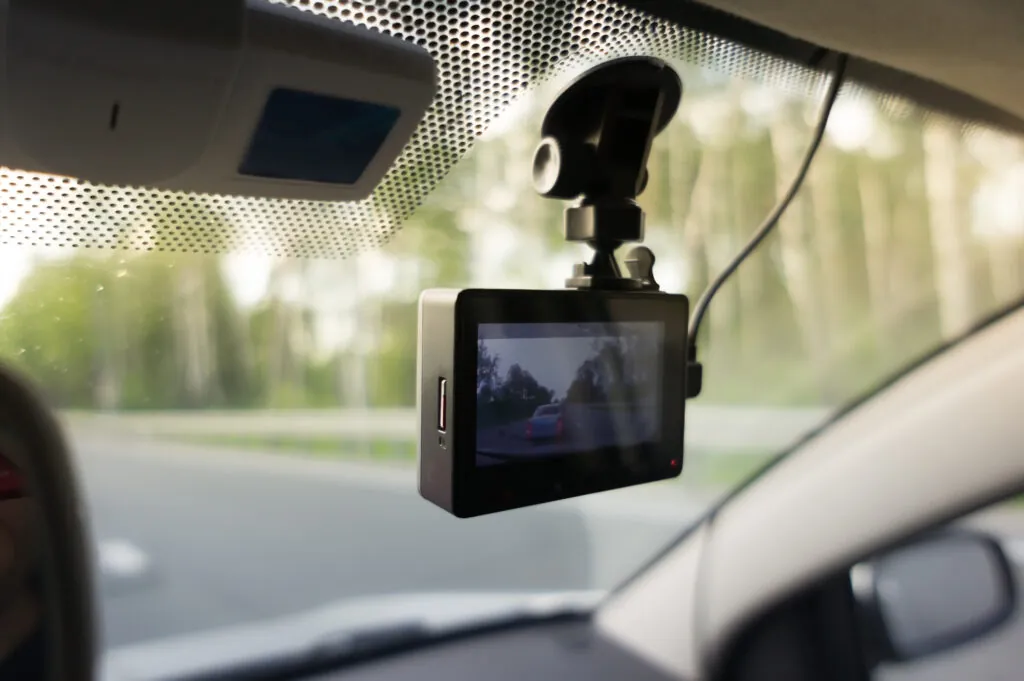Truck accidents are some of the most serious and legally complex collisions on Pennsylvania’s roads. When large commercial vehicles are involved, victims often suffer devastating injuries and face uphill battles in proving fault. In these cases, civilian dashcam footage—captured by an uninvolved driver or witness—can play a powerful role in winning personal injury claims.
If someone else’s dashcam captured your crash, that video might be the single most valuable piece of evidence you can present. But is it admissible in court? How can you find it? And what should you do with it?
Let’s dive into everything you need to know.
Understanding the Importance of Dashcam Footage in Trucking Accidents
Why Trucking Accidents Require Strong Evidence
Commercial truck crashes often involve multiple parties—trucking companies, insurers, commercial drivers, and sometimes government entities. That means more complexity, more legal defenses, and more room for disputes. To successfully file and win a personal injury claim, you’ll need clear evidence of fault.
The Role of Dashcams in Modern Traffic Collisions
Dashcams have become increasingly common among civilian drivers, rideshare operators, and delivery vehicles. They often record traffic continuously, capturing footage of accidents as they occur. If a civilian vehicle recorded your crash, that video can serve as an unbiased third-party witness, offering valuable visual proof that might not exist otherwise.
The Legal Value of Civilian Dashcam Footage
How Dashcam Footage Shows Fault and Liability
Dashcam footage can show:
- A truck making an unsafe lane change
- A vehicle running a red light
- Speeding, tailgating, or reckless driving
- Traffic signal violations
- Conditions like fog, snow, or darkness
This type of evidence helps establish negligence—a key element in any Pennsylvania personal injury claim.
What Makes Dashcam Footage So Persuasive?
Unlike human testimony, dashcam video doesn’t forget. It provides a real-time, visual record of what happened. It also offers an objective perspective, especially when recorded by a vehicle or person not involved in the accident.
Admissibility in Pennsylvania Courts
Can You Legally Use Someone Else’s Dashcam Footage?
Yes. Civilian dashcam footage is generally admissible in Pennsylvania courts if:
- The footage is relevant to your case
- It is authentic (not altered or manipulated)
- It was obtained legally
Requirements for Admissibility
For a court to allow video footage:
- The original file should be preserved and unedited
- Metadata such as timestamps or GPS data may be required
- A witness or affidavit may be needed to verify its authenticity
Your attorney can ensure that the video clears these legal hurdles and is admitted properly into evidence.
Where to Find Third-Party Dashcam Footage
1. On-the-Scene Witnesses and Civilian Drivers
If someone was nearby at the time of the crash, they might have recorded the incident, even if they didn’t realize it. Many drivers now use dashcams for insurance purposes and are often willing to help.
2. Rideshare and Delivery Drivers
Uber, Lyft, Amazon, FedEx, and food delivery drivers frequently operate with front and rear dashcams. These drivers are on the road at all hours and may have captured your crash inadvertently.
3. Nearby Businesses and Private Properties
Local businesses with security cameras aimed at parking lots or roads might also have valuable footage. If your crash occurred near a commercial area or apartment complex, those cameras could have recorded part or all of the incident.
4. Public Appeals and Community Forums
Some people post dashcam videos online without realizing they’re useful to someone else. You can search:
- Local Facebook groups
- Reddit threads (such as r/Pennsylvania)
- Nextdoor community boards
- Local news stations requesting witness videos
How to Obtain the Footage Legally
Step 1: Request Footage Directly from Witnesses
If you have contact information for someone who may have dashcam footage, reach out to them directly. Be polite, explain your situation, and request a copy of the video. They may provide it voluntarily.
Step 2: Work With a Lawyer to Issue Subpoenas
If someone refuses to share footage, or if you know a company or business recorded the crash, your attorney can file a subpoena to compel production of the footage as part of your lawsuit.
Step 3: Include It in Your Police Report
Let responding officers know that dashcam footage might exist. Police reports sometimes include mention of witnesses with video. Officers may also be able to help locate bystanders.
How Dashcam Footage Strengthens Injury Claims
Proving the Severity of the Impact
Dashcam video often shows the violence of a crash, which can help connect your physical injuries to the collision. This can counter claims by insurers who say your injuries are exaggerated or unrelated.
Reconstructing the Events Leading to the Crash
Footage may show multiple vehicles, nearby hazards, or unsafe road conditions. This is especially helpful in complex, multi-vehicle crashes, where fault is shared or contested.
Supporting or Discrediting Testimony
If the at-fault driver lies or gives conflicting statements, video can prove otherwise. On the flip side, it can reinforce the credibility of your own version of events.
Best Practices for Using Civilian Dashcam Footage
1. Preserve the Original File
The video should be stored on its original device (SD card, flash drive, etc.). Avoid editing or compressing the file. If changes are made, the defense may argue that the video has been tampered with.
2. Don’t Delay—Act Quickly
Dashcam devices often overwrite footage after just a few days. Time is critical. If you suspect someone has a video of your crash, you must act fast to obtain and preserve it.
3. Work With Legal Professionals
Attorneys who are familiar with dashcam evidence can:
- Authenticate the footage
- File legal motions to admit it in court
- Ensure chain of custody is preserved
- Use expert witnesses to analyze the video if needed
Challenges You May Encounter
1. Identifying Who Has the Footage
After a crash, it’s not always obvious who might have recorded the event. Witnesses may drive away, or you may not think to ask in the moment. In these cases, a lawyer’s investigation team may help track down potential sources.
2. Technical or Quality Issues
Some dashcam videos are blurry, obstructed, or recorded at night, limiting what they reveal. However, even a partial video showing weather conditions or vehicle movement can be helpful.
3. Hesitant Witnesses
Civilians may be reluctant to get involved in legal matters. Others may fear privacy issues or don’t want to testify. A lawyer can help ease those concerns and explain the legal protections available.
Frequently Asked Questions (FAQs)
Can I use someone else’s dashcam footage in my truck accident case in Pennsylvania?
Yes, you can use dashcam footage recorded by someone else as long as it is relevant to your case and was obtained legally. Third-party video is often used in Pennsylvania personal injury lawsuits to establish liability or disprove false claims. The footage must be preserved in its original form and shown to be authentic. A personal injury attorney can help you obtain and present it properly to meet Pennsylvania’s evidentiary standards.
Is civilian dashcam footage admissible in court?
Generally, yes. Civilian dashcam footage is admissible in Pennsylvania courts if it is deemed authentic, relevant, and untampered with. The court will typically require that the footage be presented in its original format with accompanying evidence to establish its origin and chain of custody. It helps if there is metadata, such as timestamps or GPS location, to support the video’s credibility. Courts view this type of evidence favorably when it helps clarify the sequence of events or supports witness testimony.
What should I do if I think someone else recorded my accident?
If you suspect that another driver or bystander captured dashcam footage of your accident, you should act quickly. Dashcam devices frequently overwrite old footage within a matter of days. Start by reviewing the police report to see if any witnesses are listed. You can also return to the scene and ask nearby businesses or residents if their cameras captured anything. Involving an attorney as soon as possible is strongly recommended—they can issue subpoenas, conduct investigations, and contact potential witnesses on your behalf to secure valuable video evidence.
Do I need permission to use someone else’s dashcam footage?
In most cases, if the footage is voluntarily given to you, you can use it in your case. However, if the person with the footage refuses to share it, you may need a court order or subpoena to legally obtain it. This process is commonly handled by your attorney. The footage becomes part of the legal discovery process, which allows both sides in a case to request and exchange evidence. As long as the video was not acquired through illegal means, such as hacking or unauthorized access, it is generally considered permissible.
Can dashcam footage be the main evidence in my case?
Dashcam footage can absolutely be the most important piece of evidence in your case, especially in situations where eyewitness accounts conflict or the at-fault party denies wrongdoing. It can show exactly what happened before, during, and after the crash. Footage can illustrate who had the right of way, whether any traffic laws were broken, and even capture vehicle speeds or lane movements. While additional evidence such as medical records, witness statements, and expert testimony will likely be needed, high-quality dashcam footage can make your case significantly stronger.
Final Thoughts: Dashcams Are Powerful Evidence—If Used Correctly
Civilian dashcam footage can be the missing piece of the puzzle in your Pennsylvania truck accident case. It offers raw, objective insight into what happened, often cutting through confusion and conflicting testimonies. Whether it helps prove fault, document your injuries, or contradict a false statement, this type of video is an incredible asset.
If you suspect someone else may have caught your crash on camera, don’t delay. Dashcam data is often overwritten quickly, and time is crucial in collecting evidence and building your case.
Contact Fulginiti Law Today
If you were injured in a truck accident and believe third-party video may exist, the time to act is now. Our knowledgeable Pennsylvania personal injury lawyer can help you identify potential witnesses, preserve dashcam footage, and use it effectively in your claim.
Your recovery may depend on what a passing driver saw—and recorded. Take the first step. Reach out to Fulginiti Law today and ensure that powerful evidence doesn’t go to waste.


